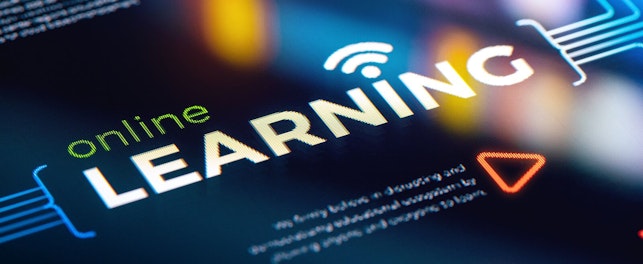What is the EU’s proposed Corporate Sustainability Due Diligence Directive (CSDDD) and how might it impact your business and society?
The EU has adopted a proposal for the CSDDD. This major legislation will require EU and non-EU organizations to conduct environmental and human rights due diligence across their operations, subsidiaries and value chains.
The directive’s goal is to foster sustainable and responsible corporate behavior, and anchor human rights and environmental considerations in organizations’ operations and corporate governance.
The CSDDD will ensure that businesses address the adverse impacts of their actions, including those in their value chains inside and outside of Europe. This will reduce the risk of adverse human rights and environmental impacts within global value chains.
What are companies and directors obliged to do?
The CSDDD establishes a corporate due diligence duty. The core elements concern identifying, ending, preventing, mitigating and accounting for negative human rights and environmental impacts in the company’s own operations, subsidiaries and value chains.
Organizations must act to prevent or mitigate any potential impacts they identify and end or minimize any real impacts. If an organization fails to comply and damages occur, it might be liable and face financial penalties.
Due to the directive’s extraterritorial nature, coupled with ongoing supply chain disruptions, compliance is expected to be significant for companies within the CSDDD’s scope.
The CSDDD will be the first EU legislation to mandate companies to adopt a climate transition plan. The requirements are likely to fit with the EU’s Corporate Sustainability Reporting Directive (CSRD) and associated standards. Certain large companies must have a plan to ensure that their business strategy is compatible with limiting global warming to 1.5°C, in line with the Paris Agreement.
Directors are incentivized to contribute to sustainability and climate change mitigation goals. The directive also introduces duties for the directors of the EU companies covered. These include setting up and overseeing the implementation of the due diligence processes and integrating due diligence into the corporate strategy. In addition, when fulfilling their duty of acting in the company’s best interests, directors must consider the human rights, climate change and environmental consequences of their decisions.
Which companies will the new EU rules apply to?
The directive will apply to EU companies and non-EU companies operating in the EU internal market that meet certain employee and turnover thresholds. The exact thresholds are being decided between the European Commission, European Parliament and Council in trilogues.
However, they are likely to be:
Large EU limited liability companies
Group 1: +/- 9,400 companies – 500-plus employees and net EUR 150 million-plus turnover worldwide.
Group 2: +/- 3,400 companies in high-impact sectors – 250-plus employees and net EUR 40 million-plus turnover worldwide. These also operate in defined high-impact sectors, e.g. textiles, agriculture or the extraction of minerals. For this group, the rules will apply two years later than for group 1.
Non-EU companies: +/- 2,600 companies in group 1 and +/- 1,400 in group 2
Third-country companies active in the EU with a turnover threshold aligned with groups 1 and 2, generated in the EU.
Small to medium-sized enterprises (SMEs)
The proposed rules do not concern micro companies and SMEs. However, the proposal provides supporting measures for SMEs, which could be indirectly affected.
What are the due diligence steps?
The CSDDD requires companies to identify and address potential and real adverse human rights and environmental impacts across their operations, subsidiaries and value chain.
Six steps mirror the steps in the Organisation for Economic Cooperation and Development (OECD) Due Diligence Guidance for Responsible Business Conduct:
- Adopt a due diligence policy that outlines the organization’s approach to due diligence and a code of conduct. Update these annually and integrate them into corporate policies
- Identify potential and real adverse human rights and environmental impacts from its operations, subsidiaries and value chain’s direct and indirect business relationships
- Prevent or mitigate potential and/or minimize real adverse impacts. Develop and implement a preventative action plan, gain contractual assurances from business partners, make necessary investments and support SMEs. Terminate business ties, if needed
- Create a complaints procedure that enables affected people and organizations to submit complaints concerning real or potential adverse impacts
- Periodically assess the implementation and effectiveness of due diligence measures. This should be at least every 12 months or after a significant change
- Organizations in the CSRD’s scope must communicate relevant due diligence information through their annual reports. Companies not subject to the CSRD must publish an annual statement on their websites
For step 3, businesses must verify that their direct and indirect business partners are complying with the steps and actions in their contractual assurances. Organizations can utilize an independent third party or industry initiative to carry out the verification.
If organizations see potential and/or real adverse impacts in their value chains, they are encouraged to engage with their value chains to prevent and mitigate potential adverse impacts and/or minimize and end real adverse impacts.
Organizations are discouraged from terminating business relationships when adverse impacts materialize unless it is only temporary or a last resort.
What are the penalties for breaching the directive?
Organizations are liable for damages if they fail to prevent potential and/or actual adverse impacts, or adverse impacts that occurred as a result, which led to damages. Affected persons can bring forward action and claim compensation.
Member states must also designate national supervisors to ensure enforcement and monitor correct implementation. They can investigate and sanction infringing companies, if required. Sanctions will be effective, proportionate and dissuasive, and based on an organization’s turnover.
At the European level, the Commission will set up a European Network of Supervisory Authorities to unite representatives from national bodies to ensure a coordinated approach.
What are the next steps?
EU lawmakers are negotiating the final text and should reach an agreement in early 2024. As a result, the directive could come into force at the start of 2024. Member states then have two years to transpose the CSDDD into national legislation, ahead of applying it to the largest companies from as soon as 2027.
Although certain areas of the CSDDD need clarification, organizations should start to prepare their plans and regulatory responses with actions to accelerate preparations. These include mapping existing due diligence policies and their value chains, and identifying business partners.
There will be a phased approach. The largest EU companies (over 1,000 employees and global net EUR 150 million revenue) and non-EU companies (EU-wide EUR 150 million revenue) may need to meet the requirements from 2027. All other businesses within the scope should prepare to meet the requirements from 2029.
What are the estimated costs of the new rules for companies?
Businesses will have to bear:
- The costs of establishing and operating the due diligence procedures
- Transition costs, including the expenditure and investments to change a company’s own operations and value chains to comply with the due diligence obligation, if needed
What are the likely benefits of the directive?
For organizations:
- A harmonized legal framework in the EU, creating legal certainty and a level playing field
- Increased customer trust and employee commitment
- Greater awareness of organizations’ negative environmental and human rights impacts
- Better risk management and adaptability
- Increased attractiveness for talent, sustainability-oriented investors and public procurers
- More attention to innovation
- Better access to finance
For citizens:
- Greater protection of human rights, including labor rights
- A healthier environment for current and future generations
- Increased trust in business
- Greater transparency that enables informed choices
- Better access to justice for victims
For developing countries:
- Better protection of human rights and the environment
- Increased stakeholder awareness of key sustainability issues
- Sustainable investment
- Improved sustainability-related practices
- Greater take-up of international standards
- Improved living conditions for people
Why is the EU pursuing the directive?
Many stakeholder groups, including civil society representatives, EU citizens, businesses and business associations, have been calling for mandatory due diligence rules. 70% of the businesses who responded to a public consultation sent a clear message – EU action on corporate sustainability due diligence is needed.
Businesses play a key role in creating a sustainable and fair economy and society. A third of companies recognize the need to take action to address the adverse effects of their actions on human rights or the environment, but progress is slow and uneven.
Increasingly complex and global supply chains make it challenging for companies to get reliable information on suppliers’ operations. Fragmented national rules on corporate, sustainability-related due diligence obligations further slow the take-up of good practices. Stand-alone measures by some member states are not enough to help companies exploit their full potential and act sustainably.
Check out our Sustainability Assurance and Supply Chain Assurance services, or contact us for more support.
For further information, please contact:
Jason Hulbert
Associate Marketing Manager
Knowledge
t: +44 7912426878
About SGS
We are SGS – the world’s leading testing, inspection and certification company. We are recognized as the global benchmark for sustainability, quality and integrity. Our 98,000 employees operate a network of 2,650 offices and laboratories, working together to enable a better, safer and more interconnected world.



